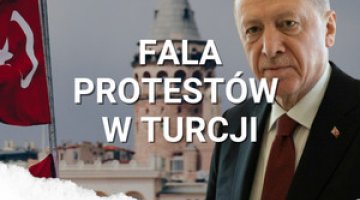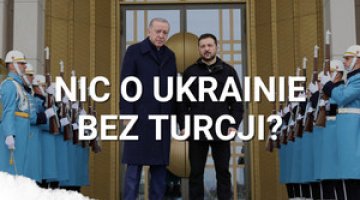Verdict against Istanbul’s mayor: the election campaign in Turkey starts
On 14 December, the criminal court of first instance sentenced Istanbul’s Mayor Ekrem İmamoğlu to two years and seven months’ imprisonment for publicly insulting 11 members of the Turkish High Election Commission. In addition, the court ruled that İmamoğlu should be excluded from political participation and holding office. The mayor has seven days to appeal against the verdict. Until it becomes final, he will retain his position and will be allowed to participate in political life. The court’s decision sparked large protests on 15 December in Istanbul, activated the opposition to support İmamoğlu, and drew negative reactions from Western media and politicians, including a critical statement from the US State Department.
İmamoğlu (52) is a member of the opposition Republican People’s Party (CHP). He became mayor of Istanbul after winning a controversial election in 2019, which had to be re-run after the ruling Justice and Development Party (AKP)’s candidate lost. İmamoğlu is now one of three potential candidates who will represent the informal opposition bloc in the presidential election scheduled for 18 June 2023 (and which will be held simultaneously with the parliamentary elections).
Commentary
- The fierce opposition to the court’s decision, both within Turkey and from the West, stems from sustained criticism of the restrictiveness of Turkish law on issues including the authority of the state and its representatives, a belief that the courts are excessively dependent on the government and, more broadly, the increasingly authoritarian course it is taking. Currently, the leader of the opposition Peoples’ Democratic Party (HDP; the government is threatening to ban it) is in prison; ironically, in 1997 Recep Tayyip Erdoğan, then mayor of Istanbul, was himself imprisoned in similar circumstances. In the current situation, the charges carry considerably more weight due to the upcoming presidential and parliamentary elections. These will take place against a backdrop of growing fatigue at 20 years of rule by the AKP and Erdoğan, as well as the country’s deepening economic and social crisis. The elections also have an important symbolic dimension, as they will take place on the centenary of the Republic of Turkey’s foundation, and will symbolically decide Turkey’s Kemalist (republican and nationalist) heritage. According to polls, the ruling AKP-MHP coalition can count on 30-40% support, while Erdoğan himself can count on around 40-45% of the vote (figures comparable to those achieved by the main opposition candidates, including İmamoğlu).
- The verdict against İmamoğlu is not final, and he is entitled to a two-stage appeal, which may take two to three years to be concluded (however, it could come more quickly). The announcement of the court’s ruling immediately mobilised the opposition to display its unequivocal support for the accused and to demonstrate their own unity. The verdict has also triggered public discontent against the authorities, and will undoubtedly give life to the election campaign and significantly influence its course. At the same time, however, it already confirms the chronic limitations of the opposition at this stage: the competition for the de facto leadership of the CHP, its main party (between İmamoğlu, the mayor of Ankara Mansur Yavaş, and the CHP’s leader Kemal Kılıçdaroğlu, who enjoy similar levels of support in opinion polls); the friction between the various groupings (the current crisis has also allowed Meral Akşener, the ambitious leader of the Good Party [İYİ] to strengthen her position); and the tension between the nationalist bloc within the opposition and the Kurdish voters (İmamoğlu is seen as the link between these electorates). At the same time, the uncertainty about when the verdict will be finalised will keep the opposition camp nervous.
- The ruling on the Istanbul mayor is a reminder of sorts that Turkey is on the threshold of a very fierce election campaign which will be decisive for the country’s immediate future. The authorities will not be able to avoid accusations of fraud which, along with the country’s deepening social problems, will exacerbate polarisation and social tensions. The government is even more likely to play upon the controversial Kurdish issue (the fight against the PKK’s terrorism), as is alleged Western interference in the electoral process. Thus, notwithstanding the ruling camp’s strong base of public support and its ability to effectively mobilise citizens during the campaign, at this stage the outcome of the election remains uncertain, and there is a risk that it will be contested.




